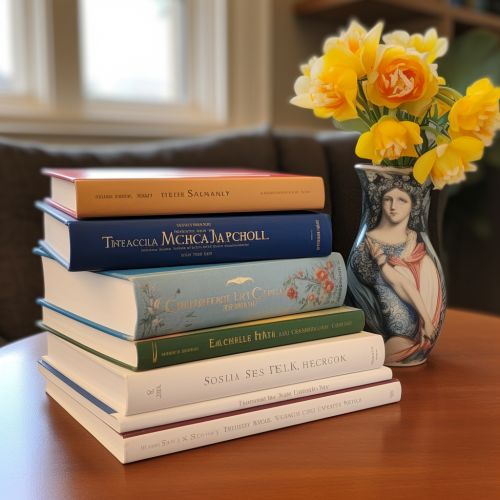Literature and Psychology
Introduction
Literature and psychology are two distinct fields that often intersect, providing valuable insights into human behavior, emotion, and cognition. Literature, as a form of art, often explores the human condition, while psychology, as a scientific discipline, seeks to understand the mechanisms behind human behavior and thought processes. The study of literature can offer a rich source of material for psychologists, while psychological theories can provide a framework for literary analysis.
Literature and Psychology: An Interdisciplinary Approach
The interdisciplinary approach of combining literature and psychology is often referred to as psychological criticism, a form of literary analysis that uses psychological theories to interpret characters, themes, and narratives in literary works. This approach can provide a deeper understanding of the motivations, emotions, and behaviors of characters, as well as the psychological themes that may be present in a work of literature.


The Role of Literature in Psychology
Literature can play a significant role in the field of psychology in several ways. Firstly, it can serve as a rich source of case studies. The detailed portrayal of characters in literature can provide psychologists with a wealth of information about human behavior, emotions, and thought processes. Secondly, literature can be used as a therapeutic tool in bibliotherapy, a form of therapy that uses reading materials to help individuals deal with psychological issues. Lastly, literature can also contribute to the field of psychology by providing insights into cultural and societal norms, values, and beliefs, which can be useful in cross-cultural psychology and social psychology.
The Role of Psychology in Literature
Conversely, psychology can also play a significant role in the field of literature. Psychological theories can provide a framework for literary analysis, helping to interpret characters, themes, and narratives in literary works. This can lead to a deeper understanding of a work of literature and its impact on readers. Furthermore, psychological concepts can be used in the creation of literary works, with authors often drawing on psychological theories to develop realistic characters and compelling narratives.
Psychological Criticism
Psychological criticism is a form of literary analysis that uses psychological theories to interpret characters, themes, and narratives in literary works. This approach can provide a deeper understanding of the motivations, emotions, and behaviors of characters, as well as the psychological themes that may be present in a work of literature.
Bibliotherapy
Bibliotherapy is a form of therapy that uses reading materials to help individuals deal with psychological issues. It can be used as a standalone therapy or as a supplement to other forms of therapy. The materials used in bibliotherapy can range from self-help books to novels, and the selection of materials is often tailored to the individual's needs and interests.
Cross-Cultural Psychology and Social Psychology
Literature can provide insights into cultural and societal norms, values, and beliefs, which can be useful in cross-cultural psychology and social psychology. These fields of psychology often draw on literature to gain a deeper understanding of different cultures and societies, as well as the impact of societal norms and values on individual behavior.
Conclusion
The intersection of literature and psychology offers a rich field of study, with the potential to provide valuable insights into human behavior, emotion, and cognition. The use of literature in psychology can provide a wealth of case studies and therapeutic tools, while the use of psychological theories in literature can lead to a deeper understanding of literary works. As such, the study of literature and psychology can enrich both fields, contributing to our understanding of the human condition.
